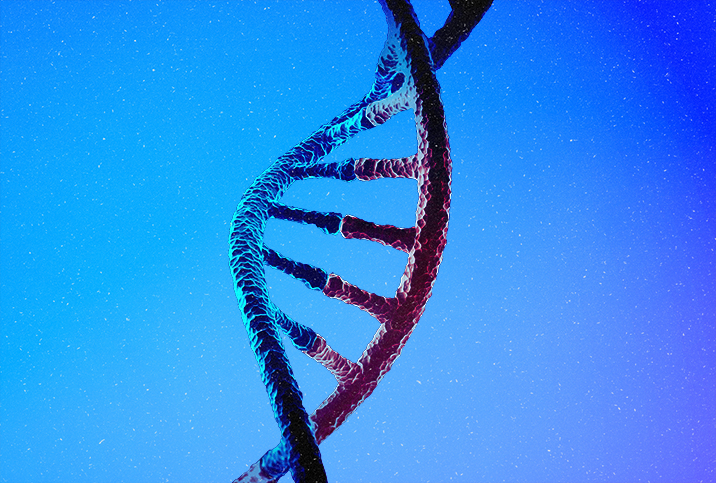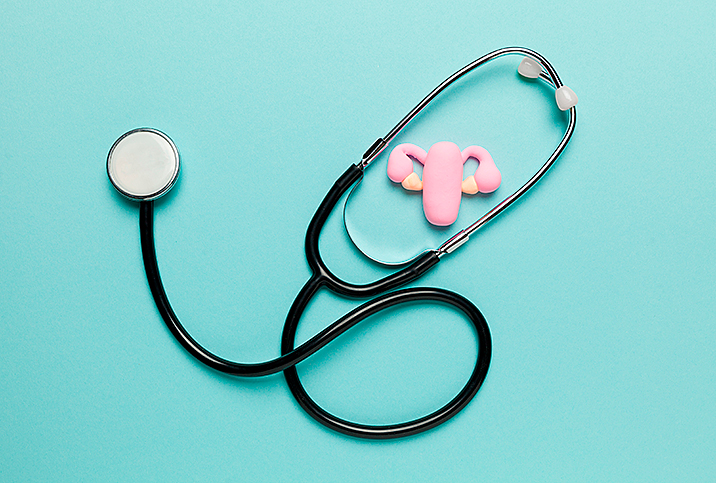How One Woman's Endometriosis Impacted Her Fertility

When Frances Jones, 55, was in college, she experienced horrific pain each month during the first two to three days of her period. At first, she kept it a secret.
"We didn't talk about it in my family, so I thought the pain was normal during that time of the month," Jones said in an interview. "If there had been conversations going on about it, maybe I would have been checked sooner but it was such a taboo conversation at the time because I had older parents. My mother was born in 1925."
Eventually, at age 31, Jones confided in a physician about the discomfort she experienced in her lower abdomen during intercourse with her husband. At first, she was misdiagnosed with pelvic inflammatory disease (PID), which can cause pain with sex and lead to infertility if left untreated.
During the examination, the doctor discovered Jones had cysts on her ovaries, but did not make the connection to endometriosis. It would take three years before Jones received a correct diagnosis, and by then the damage was extensive.
'We didn't talk about it in my family, so I thought the pain was normal during that time of the month.'
"There was scarring and adhesions everywhere," Jones said. "The entire [area] was obliterated with two enlarged and swollen ovaries, which was a huge factor in my not being able to conceive children.
"If I had told someone earlier about the pain I had been dealing with, perhaps I could have improved my odds of getting pregnant, but the endometriosis, in my case, had just completely taken over," she concluded.
While endometriosis diagnosis and treatment have improved in the years since Jones was young, awareness of the condition is still low. If you're suffering from symptoms—such as excessive cramping, irregular bleeding, pain during sex or heavy flow—talk to your doctor about the possibility of endometriosis.
Managing endometriosis and your future fertility
Endometriosis, as defined by the World Health Organization (WHO), is a chronic disease in which tissue emerges outside the uterus, which can cause a whole host of symptoms. It can also impact fertility.
Jones is among the 190 million women and teens diagnosed with endometriosis worldwide. If you're one of the 10 percent of women with this condition, knowing how best to manage your symptoms and thinking about your fertility plans for the future is important.
"Taking birth control pills is a good way to manage endometriosis and it's not much above and beyond what many women do anyway for contraceptive purposes," said Kathleen Brennan, M.D., a physician at UCLA who specializes in reproductive endocrinology and infertility. "It's important to be evaluated and consider fertility preservation because age—and combined with endometriosis—can definitely make it much more difficult to get pregnant.
"We think that the endometriosis may damage the eggs when they're released," Brennan continued. "So, when the egg is released from the ovary, it's released into that inflammatory environment until [one of] the two tubes picks it up. There is a major misconception that the egg goes directly into the tube, but the egg is, in actuality, released into your pelvis and then the tubes are like vacuums [that] pick up the egg."
'We think that the endometriosis may damage the eggs when they're released.'
Jones underwent a laparoscopy to officially diagnose her endometriosis, which was common at the time.
"In the past when one had an infertility workup, a laparoscopy was part of that infertility workup where we put a camera through the belly button and looked inside the pelvis," Brennan explained. "We don't do that routinely anymore. If someone has an endometriosis lesion in the ovaries, then it's pretty clear...that's what that is."
Brennan recommends fertility treatments to help women with endometriosis conceive. "Fertility treatments help with fertility more than trying to do surgery for it," she stated. "The methods that we're using to control endometriosis include birth control pills and Lupron injections you can do monthly or every three months. The other thing that we often use is Letrozole, which is an aromatase inhibitor and prevents the conversion of androgens to estrogens."
When a woman with endometriosis is pregnant, she may experience a decline in her symptoms. "We...see symptoms get much better in pregnancy because pregnancy is a high progesterone state," Brennan explained. "When you have a lot of progesterone around, it combats the proliferation of endometriosis lesions, but then once the baby is delivered and a woman starts to ovulate and have cycles again, [symptoms] will come back again."
If you think you may have endometriosis, it's important to speak with your doctor. They can help you navigate your condition, your family planning goals and the treatment options that are best for you.


















